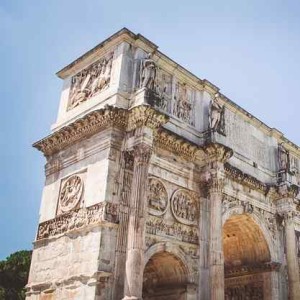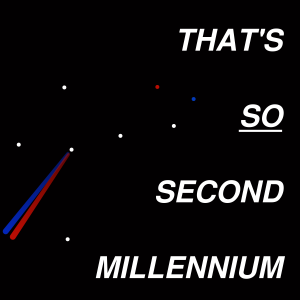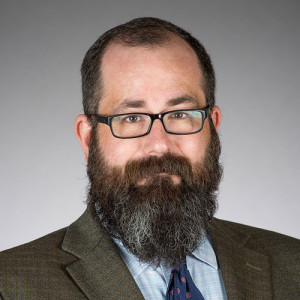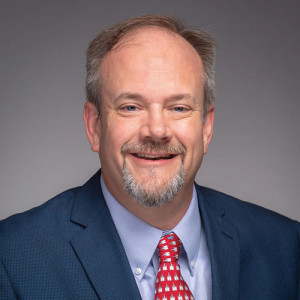Episodes

Thursday Apr 11, 2019
Post Christian: Money
Thursday Apr 11, 2019
Thursday Apr 11, 2019
Picking up some loose ends from the CNAG post of the same title. I remember the sense of brimming over with things to say when time and a change of focus from the personal to the social and political brought that post to a close, but very little has come back to me in the weeks since.
The core, in any case, and the reason why it calls for a Post Christian post, is the point that the Christian Church risks its integrity by the very fact of being a social institution possessing property and money. Reality dictates that even the persecuted Church has a certain quantity of resources (one thinks of the treasure that his persecutors thought to extract from St. Lawrence) but the legal and above all the official Church tends to accrue tremendous wealth. This wealth contrasts sharply and painfully with the life and teaching of its Founder, who commented that in his wanderings he owned no home (one thinks of the tent that long housed the Ark of the Covenant) and that it was easier for a camel to pass a needle's eye than for a rich man to enter heaven.
This contrast has motivated Christians to take action to restore the integrity, at least in their own personal lives, since before the time of Constantine. Antony went out into the desert, surely not the first Christian hermit but a supremely influential one. Francis, the little poor man, attracted legions of followers seeking authentic discipleship to Jesus, and war was waged for decades and centuries between those who tried to live as other religious did and those who tried to get as close as they could to the theoretical ideal of complete lack of property. The Reformation and the anticlerical Revolutions of the latter half of the second millennium stripped the Catholic Church and its religious orders particularly of their influence, position in society, and much of their wealth.
It seems to me that we are living in the last, dying days of the institutional Church (and Pope Benedict has gone on record in some of his books as thinking much the same). I hope that's the case, because there is something better waiting for us if we get more serious about taking the pieces of the Church we have been given and assembling them, brick by brick at the local level, into something more nourishing and authentic, more concerned for the poor and the needy (which includes not being satisfied with simply handing them material goods to get them through in a state of dependency).

Monday Apr 08, 2019
Episode 054 - TSSM Season 2
Monday Apr 08, 2019
Monday Apr 08, 2019
In this episode we roll out a new format for Season 2.
We recap Season 1 (April 2018 - March 2019) and the three focus areas of the podcast so far:
- Discussion of the fundamentals of the question whether it's reasonable to believe in both science and the Catholic Christian faith, and some exploration of particular topics, like the role of geology in the interpretation of the book of Genesis.
- Review and comments on the speakers at the Society of Catholic Scientists Conference 2018.
- Interviews with scientists and scholars living out their Christian faith, many of whom are actively trying to spread the truth that the presumed conflict between science and religion is false, born from shoddy understandings, strawman arguments, and reactions against hypocrisy. Three of these people (Patricia Bellm, Chris Baglow, and Jay Martin) do this work at the McGrath Institute for Church Life at the University of Notre Dame.
We then go on to discuss our plans for coming episodes, turning to topics of religion, spirituality, and psychology (including topics like child development and addiction) where the intersection of faith and science allows us to build new solutions or give tremendous new life to old solutions to the problems of human life.

Sunday Mar 31, 2019
Sunday Mar 31, 2019
0:00 - The question of relativism vs. hyperrationalism
1:00 - God's love is not a "fact" but, say, hominid ancestry is
1:30 - Tapping into the belief in the rationality of science to bring back belief in reality in faith
2:30 - "Kicking in the back door of relativism"
4:00 - Linkages between theology, philosophy, and science: e.g. logical consistency
5:30 - Effects on the rest of schools that participate in the Science & Religion Initiative
6:30 - Encouragment to integrate, say, history, economics with faith as well
7:00 - Congregation for Sacred Doctrine 1977 "The Catholic School"
8:00 - Faith & literature, arts
9:30 - The true limits of dogma; need to understand how limited Catholic dogma really is, and how non-restrictive
13:00 - Teachers woefully overworked and underpaid, not given the ability to succeed
14:30 - Blessed to have excellent but also humble panelists & experts intending to listen to one another
19:00 - Story of the second & first editions of Baglow's textbook

Monday Mar 25, 2019
Monday Mar 25, 2019
0:30 - McGrath Institute for Church Life: Science & Religion Initiative outreach to high school teachers to integrate science & faith
2:00 - Gulf Coast Faith Formation Conference (a good time to be away from Notre Dame)
3:00 - Summer seminars: Foundations Notre Dame, Foundations New Orleans, Capstone
4:00 - Foundations ND: lecture based, top scholars in specific disciplines, with workshops
6:00 - Foundations NO: experimental work and discussions
7:00 - Dialogue between science & theology teachers about their own specialties
8:00 - Capstone: topic-based theme & lecturers; special track for administrators; teaching practices
11:00 - Templeton Foundation study showing schools already trying to do this on their own
12:00 - The need to do this well and not engage in pseudoscience or gloss over tough questions
14:00 - ICL team making "housecalls" to individual schools
14:30 - Baglow textbook on science & faith
18:00 - Vast multiplication of interest from schools just since 2011
19:00 - Real motivations for believing faith is inconsistent with science: the need for hope [and, not made explicit, the appropriateness of hope]
20:00 - "I thought I was the only one"
21:00 - The historical and emotional impulse: rebellion against Christian hypocrisy
22:30 - Baglow makes the Fulton Sheen point: "I also hope THAT God doesn't exist!"
23:00 - The questions he wishes people would ask about God, meaning, science, etc.
24:00 - "What do you mean by 'God creates everything'"
25:00 - The nature of the discourse we encourage
26:30 - "I don't know"
27:00 - "When did science and religion enter into conflict?" - because they have not always been
28:20 - The true role of the university in integrating human wisdom
30:30 - Newman on evolution in the context of Development of Christian Doctrine

Thursday Mar 21, 2019
Bonus Episode - Patricia Bellm: Bible interpretation
Thursday Mar 21, 2019
Thursday Mar 21, 2019
The Bible as an instrument of getting to tell people what to do
Flood geology and cramming one's ideas into a "literal" reading
Adam and the Genome

Saturday Mar 16, 2019
Bonus Episode - Patricia Bellm: Miguel from Mexico
Saturday Mar 16, 2019
Saturday Mar 16, 2019
The blind man who could see more than his neighbors... asking Patricia about German reunification
The industries that used up his sight

Saturday Feb 16, 2019
Post Christian: The Golden Mean
Saturday Feb 16, 2019
Saturday Feb 16, 2019
I have now lived quite a long time with my particular cluster of habits of thought. I am capable of following pretty extended lines of reasoning and layerings of figurative language, but I also at some point have to have a pretty literal and explicit place to rest my figurative head, especially when it comes to my beliefs and attitudes about myself and how to live in the world.
I take things to extremes. I think I take things literally that few other people do. Take, for example, how strictly I adhered to the implicit mandate, "Whoever loves his life loses it, and whoever hates his life in this world will keep it for eternal life." Better get right down to making myself miserable, then! I mean, my efforts to make myself miserable were pretty pathetic and heavily punctuated by outbursts of addictive behavior (mostly seeking the intellectual high of strategy games or relentless shallow reading), but the habit of thought was clear and persistent.
I have had to literally spell out what I think about this line from the Gospels for myself. I think I have to take this as hyperbole aimed to shock people out of a self-satisfied mindset of primarily looking out for their own pleasure or security. I think I have to take the literal approach that I take care of myself because when I'm functional, I can do Jesus' work and help other people. I have a lot of experimental evidence that trying to hate myself "enough" or make myself miserable "enough" makes me pretty worthless to other human beings, and I don't think I can square that with the rest of the New Testament or any of my own experience of prayer.
Of course, I bring this up in this context because I think human cultures also take things to extremes. In particular, we overreact and bend the bow too far in the opposite direction. Once we identify an abuse, we collectively decide to throw away everything that seems even tangentially related. Often we become focused on something very tangential and counterproductive.
The Reformation came, and something of the sort was inevitable, because of the hypocrisy of wealthy clergy, welded into the political establishment, and often flagrantly dismissive of their promises of celibacy. Yet the Reformation did not focus on repairing these breaches, but instead gave up on humanity entirely and went after ludicrous ideas like sola scriptura and sola fides.
The Enlightenment came, and something of the sort was needed, because intellectual culture had become fixated on theology and philosophy of a kind that had gone stale. The practice of criticism, and seeking an answer within the material order for natural phenomena whenever they could be found, is absolutely of benefit to humanity. Yet it went too far, and arrogantly decided that religion was bad in all ways and at all times, completely losing sight of the fact that the faith that formed the culture in which it grew was already a critical faith and had originally spread because it actually changed people's lives. Not only that, but the Enlightenment rapidly became enamored of its own preliminary findings... and all findings from the critical method of science are to some degree preliminary. It has been a century since the people actually doing science had to reluctantly accept that Newton's laws don't tell the whole story, overturning the sense of complete certainty those laws had engendered. Philosophers of science have seen the point, and agonize, justly, to this day over whether science "proves" anything... but you wouldn't know that from listening to the contemporary self-anointed heirs to the Enlightenment.
There is a place in the middle, an Aristotelian mean at which to come to rest, but I guess that bores us.
The Post Christian meditations address the larger question, "Why do people believe science and the Catholic, Christian faith are mutually contradictory?" by considering the background reasons why people in the modern West desire to punish the faith of their ancestors and deny it credibility, apart from any cogent reasons to reject its actual dogmas and teachings.

Saturday Jan 19, 2019
Post Christian: State and Religion
Saturday Jan 19, 2019
Saturday Jan 19, 2019
The "Post Christian" series will continue the line of thought that I started in "Why Do Westerners Really Think Science and Faith Are Opposed?" To sum up my hunches from that post in a few lines, I would say that this perceived opposition derives partly from misguided attempts at intellectual piety in the late medieval and early modern period whose aftereffects are still with us today. However, I really think it is more a displaced form of punishment of the Church for the sins of its clergy and its ostensible allies in secular political power, in the present and in the past, for being such massive hypocrites and living in such obvious contrast with the example and teaching of Jesus Christ and his apostles, their early followers, and those who still answer that call today.
I noted in my first post that it was surprising that the Constantinian experiment of making Christianity a state religion lasted as long as it did. That's true from the perspective of the New Testament and the early Church. It could hardly be more obvious, from the canonical books of the N.T., that the movement Jesus of Nazareth started was never intended to be allied with a state. Jesus in the Gospel of John deliberately dodges secular kingship. When Pilate confronts him about being the Messiah and therefore claiming kingship, Jesus comments that his kingdom is not here, in this life. Luke and Paul pick up most particularly on this Jesus' concern for the poor and his habit of hanging about with them rather than the movers and shakers of political life, and they recommend this behavior as an example to those who follow him.
Of course, the very word "secular" comes from the Latin "saeculum" and we inherit it from Catholic thought, distinguishing the "saeculum" or this age from the more important concerns of eternity. The union of Church and state was always precarious, even in its arguable golden and silver ages of the fourth century and the high medieval period. The question is why this union was attempted at all.
The answer, it seems to me, is an enormously strong human tendency toward seeing service to the gods and service to the community or state as merely two sides of the same smooth round inseparable concept. Seen from this perspective, it was inevitable that if Christianity gathered enough of a following, states would grow up where the experiment of bridging the unbridgeable chasm would be tried.
I tend to assume everyone has read the same things I have. Perhaps it's that dash of Asperger's syndrome I have long wondered about... In any case, let me draw out a few parallels just for the sake of reminders about how differently ancient societies worked:
Homer's Iliad and Odyssey shaped the ancient Hellenistic and Roman imagination in pervasive ways. In the Iliad, of course, the gods are all completely preoccupied with the political struggle unfolding on the shore of Asia Minor, intervening in messy and violent ways on behalf of their clients. Human and divine affairs are sewn together very tightly.
In ancient Rome, among the many elected offices that successful men of means pursued on the cursus honorum were any number of niche priesthoods. As a contemporary Catholic this sounds quite bizarre, but perhaps my Protestant brethren do not find it quite so odd. In any case, these priests were clearly part of the political establishment and had their bureaucratic functions, and conversely the praetors and consuls and censors had their own priestly functions.
A casual read of some of the Chinese classics, such as the writings of Confucius, Mencius, and even Lao Tzu, makes it clear that the Chinese mind was formed by thinkers who expended considerable effort seeking understanding of how best to govern. Spiritual affairs and the matters of the gods are all subjected toward that end in Confucianism, and even the more inward and mystical Taoism had no shortage of adages to guide the statesman. (It is no wonder that Chinese governments down to this very day seem to have no idea what a religious movement not rigidly controlled by state bureaucrats could even be, aside from a rebellion.)
I could go on endlessly, of course. Politics so easily dominates the human mind that if something is excluded from political process, as religion has been in the West, it inevitably leaves the awareness of many people. By the same token, if something begins to loom large in public consciousness, it begins to be debated in the halls of power whether it needs or wants to be or not.
Such, broadly speaking, has been the fate of Christianity.
The Post Christian meditations address the larger question, "Why do people believe science and the Catholic, Christian faith are mutually contradictory?" by considering the background reasons why people in the modern West desire to punish the faith of their ancestors and deny it credibility, apart from any cogent reasons to reject its actual dogmas and teachings.

Monday Jan 14, 2019
Episode 042 - TSSM in 2019, part 2
Monday Jan 14, 2019
Monday Jan 14, 2019
What sense can we make of the ancient and medieval idea that "the soul is the form of the body" in the light of contemporary neuroscience and psychology?
Highlight this idea's differences from Platonic and Cartesian dualism.
History of psychology as a discipline. Psychology has not evolved (a) master paradigm(s) that compel the bulk of the field to adhere to them the way that plate tectonics did for geology, Newtonian classical physics and then quantum and relativity did for physics, etc.
Peace of Soul (Fulton Sheen) remark that psychology has been furtively recycling Christian ideas and passing them off as new for a long time
Examining the convergence points of the advice for living from the Bible and Tradition, modern psychology, and the contemporary self-help / New Age-y movement that continues to spread and adapt through large sectors of modern culture.
Self-esteem, humility...
Confidence, faith, negative tapes...
Twelve Step spirituality (Richard Rohr and the intense overlap between 12 Step and Catholic spirituality)
Even many of us who are explicitly Christian have internalized a kind of Lutheran / Jansenist belief that we are so terrible that, in essence, God made a mistake in going to all this effort to save us, because we're not worth it. This is one of a number of areas in contemporary Catholic and Christian culture where we have let our understanding of Scripture and Tradition get very warped and imbalanced.
Issues surrounding how the Christian and scientific understanding of universal history could fit together.
What will "the end of the world" look like? Will it be the end of the whole universe or not? Will there be human colonies on other planets, orbiting other stars? How would the Apocalypse play out then?
You can find That's So Second Millennium at all of these places:
tssm.podbean.com
paggeology.net/blog
@infamousDrG on Twitter
That's So Second Millennium page on Facebook
giesting -at- alumni.nd.edu is Paul's email address
Please be in touch with your feedback, ideas for new episodes, and conversation of any kind!

Monday Jan 07, 2019
Episode 041 - TSSM in 2019
Monday Jan 07, 2019
Monday Jan 07, 2019
Themes we'd like to grapple with in the Year of Our Lord, 2019, and beyond:
Last year was largely about the intellectual challenge leveled by many against religion, and we will continue talking about that as the podcast moves forward.
Paul's mission this year to work through Road to Reality
This year we also want to broaden the scope to include places where religion and faith converge, which means we're going to discuss psychology.
Looking forward to the SCS conference topic for this coming year: what it is, and has been, to be human. Neuroscience and what it implies for anthropology, and where it meets Catholic Christian anthropology coming the other way.
What is consciousness, anyway? What parts of the brain seem to be involved, and what do they do?
What is free will, anyway? Where are those breakpoints where the soul would have to affect the body in order for that to even work?
Crisis points in the way people in the post-Christian West approach the world.
Center for Ethics & Culture annual conference in 2018: Wilfred McClay & John Waters
"we care about everything, but without God... we have responsibility for everything, but we know that we are flawed and unable to provide solutions"
Post-Christian in this context includes both people who have explicitly renounced the Christian faith of the West and those who have a Christian identity in their back pocket somewhere but in reality are not relying on Jesus Christ or his teachings to guide their lives in any conscious way.
Christianity is a demanding religion. If you suck away all the grace and help it promises, but leave some of its demands for social justice or purity of intention, you have a recipe for constant internal condemnation.
Link:
Wilfred McClay (University of Oklahoma) on “Guilt in the Immanent Frame”, and John Waters on “The Importance of Not Being God: A Higher Power Is Indispensable for Human Beings and Human Societies”
No, not THAT John Waters.

